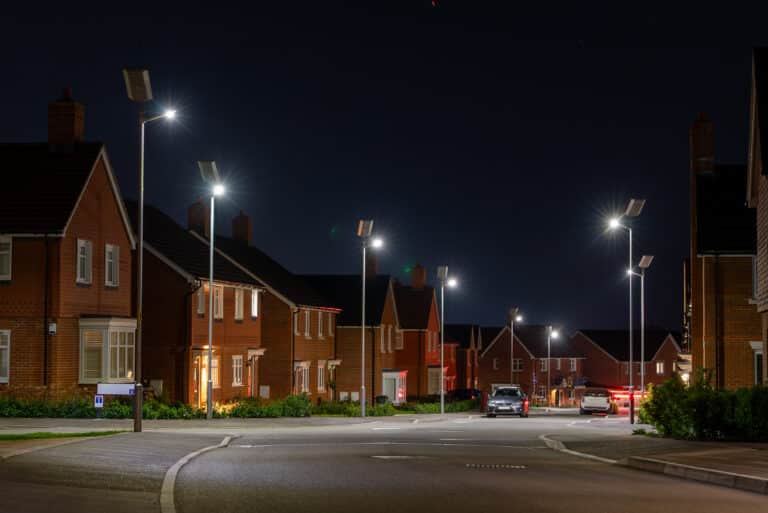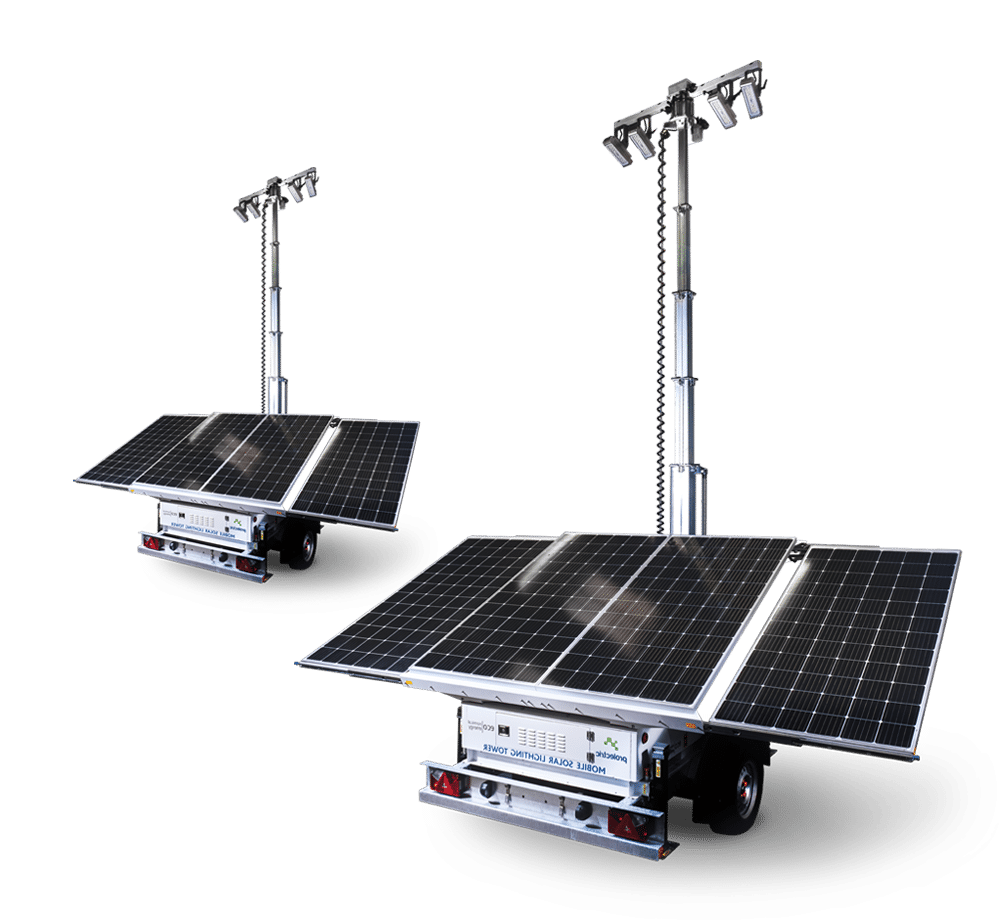
What is your current role, and what are your main responsibilities?
As the Business Development Manager for the construction sector at Prolectric, I am responsible for growing our sustainable product offering within the industry. This can be through account management to grow the business organically or through new business opportunities.
What inspired you to pursue this field, and how did you get started?
For some years I had been considering a career change to the renewable energy sector to play my part in reducing CO2 emissions, but I wasn’t exactly clear on what type of role I wanted to do. By having extensive experience in previous account manager roles, I knew there was an existing skill set that I could transfer across to a new sector.
An opportunity presented itself to become a Business Development Manager in a company building Battery Energy Storage Systems (BESS). This vital experience demonstrated the benefit hybrid systems can have on reducing harmful emissions released from diesel generators and since then I haven’t looked back.
What do you consider to be the biggest challenge facing your industry today?
Education is critical with the adoption of new technology. This piece of work not only links to the key decision makers who buy into new innovations, but the site operatives who are using the equipment day-in, day-out.
Ensuring that everyone is clear on the environmental and cost saving benefits, as well as how to utilise the technology as efficiently as possible brings a much higher return-on-investment.
Can you share an example of a successful project you worked on, and what made it successful?
Working with a main contractor to provide power for a multiple cabin set up in a remote location presented several challenges. Firstly, with the site running 24/7, there were multiple high-power peaks at various points in the day. To help balance the load and ensure the Solar Hybrid Generator could meet this requirement, we deployed a smart distribution board to turn energy-intensive appliances off at specific times of the day when they weren’t required to help balance the power load.
The success element was achieved by working closely with the customer to fully understand the power requirements on site at the planning stage. This coupled with our own savings calculator provided the customer with the fuel and CO2 savings they could expect to achieve in comparison to running solely on a diesel generator.
How do you see the industry evolving in the next 5-10 years, and what trends do you think will drive this evolution?
We are already starting to see new policies come into force, requiring the construction industry to implement more sustainable practices across the whole build schedule. Now that the early adopters have embraced sustainable technology and are reaping the CO2 and cost saving rewards, it will become more common-place for the industry to adopt the technology quickly.
Within the next 5-10 years we will be seeing construction sites that are completely or very close to being net zero when it comes to reducing scope 1 & 2 CO2 emissions during the build process.
How do you think technology is impacting the industry, and what opportunities and challenges does this present?
If you look at the last 50 years, solar technology has come a long way since it was first introduced, with the ability to generate more power efficiently. This, coupled with the recent advancements in lithium battery technology, has opened a vast array of opportunities for the construction sector to reduce their diesel consumption significantly.
The fact that you can now set up solar products on your sites and forget about them, without having to worry about refuelling or maintenance costs is a positive step towards ensuring projects finish on time and within budget.
What are some common misconceptions about your industry or field you can dispel?
The perception that sustainable construction is prohibitively expensive and not value for money.
Taking a proactive approach to implementing sustainable solutions is an initial investment and standard diesel generators will be a cheaper cost in the first instance. However, over the longer term you will start to reap the rewards of investing in sustainable solutions with both cost and CO2 savings. This is achieved by less fuel being burnt, less refuelling and a reduction in maintenance and servicing costs.
A further benefit is that generators are less efficient when the power loads are low and a hybrid system with battery technology performs far superior in these circumstances. This is also vital for working in areas with noise restrictions in place, as batteries provide silent and clean power. The opportunity this presents to prevent your business from being fined for breaching these noise restrictions is too important to ignore.
Switching from a diesel generator to our ProPower Solar Hybrid Generator, saves on average 9,473 litres of fuel annually, with a total operational saving of £17,382 and mitigates 25,388 kg of CO2e. ProPower generators reach their cost neutral point at 2 years and 6 months, saving £11,668 in the first year, £51,647 after 5 years and a staggering £88,033 after 7 years – a generator that keeps on giving, saving you money.







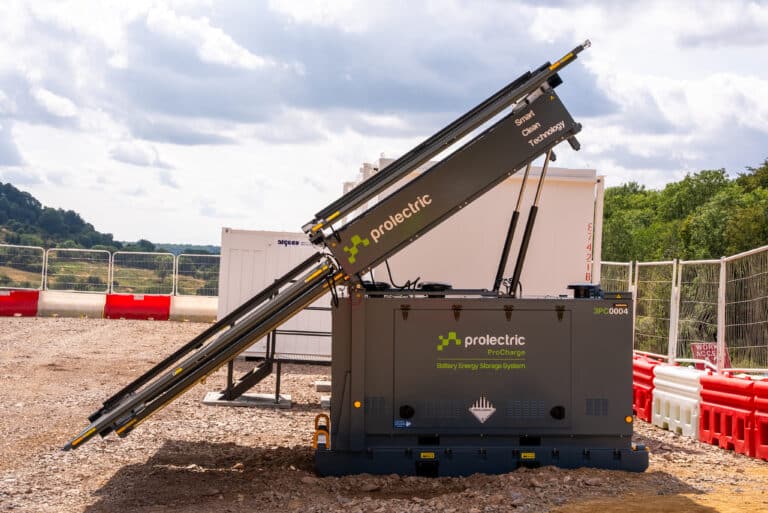
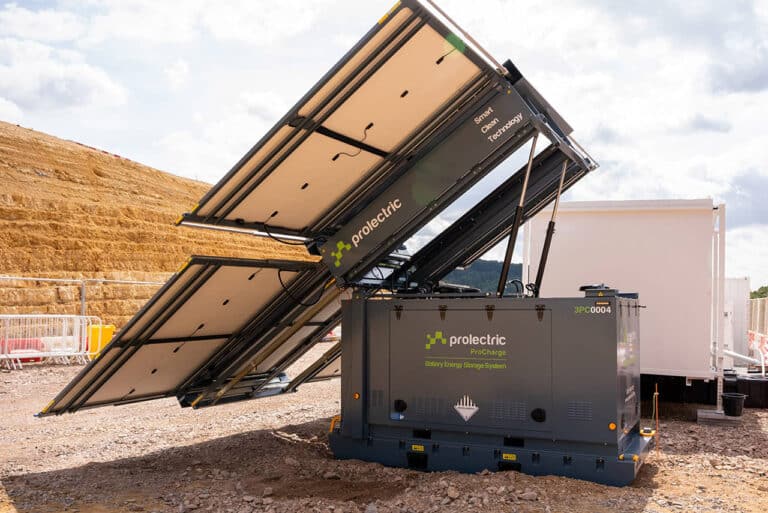

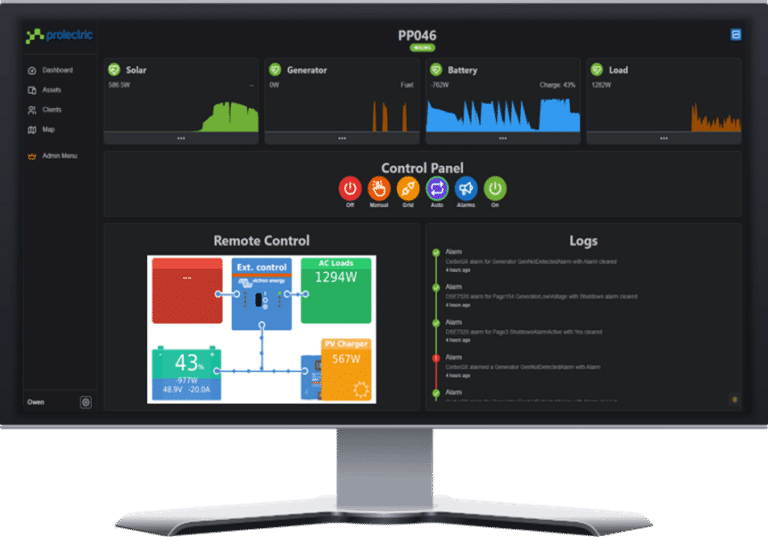
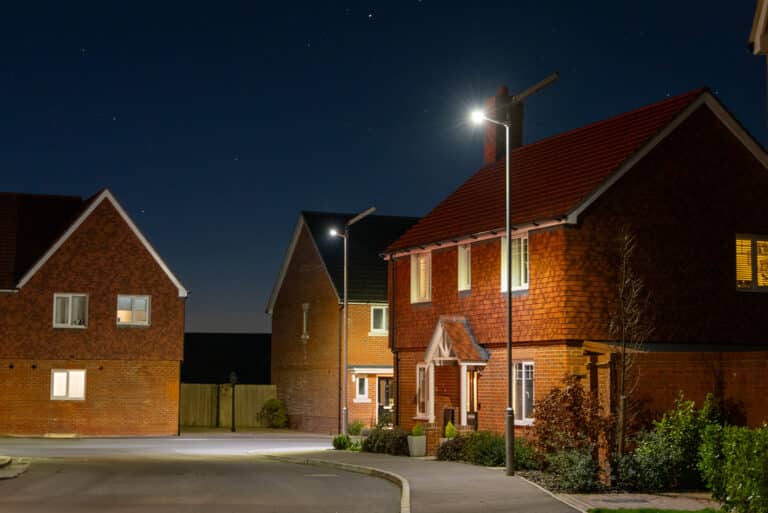
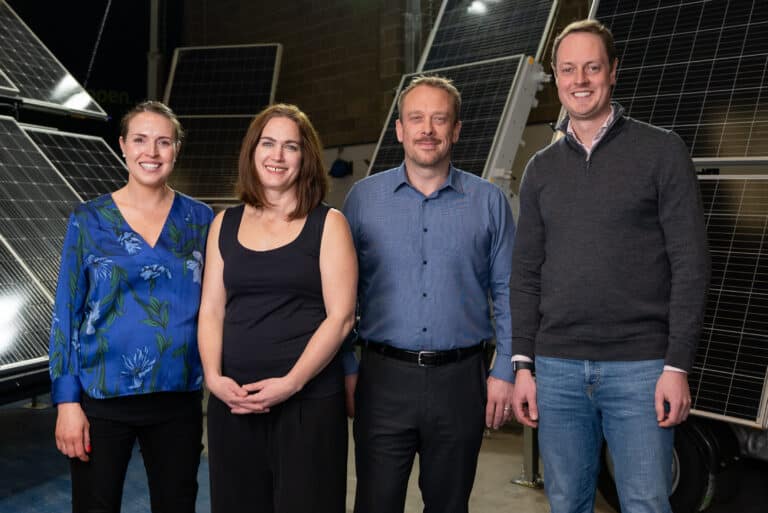

![Prolectric ProPower Water Utilities [Day]](https://media.prolectric.co.uk/uploads/2024/04/Pro-Power-Water-Utilities-Day-768x512.jpg)
